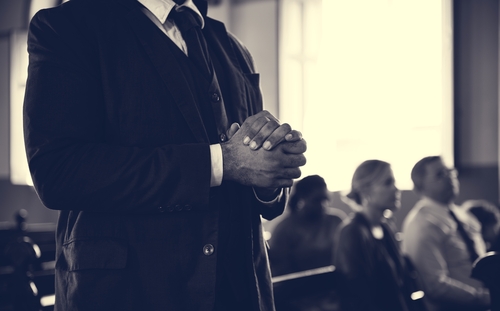“From maintenance to mission” is a phrase often used when speaking of the need for a process of spiritual renewal in a parish community. Just like many things in life, sometimes a parish community can “get in a rut” of simply “going through the motions.” When this happens, the pastor and community leaders must work to transform the parish into a vibrant and active community.
The real work of liturgy in a parish is that process of ever-refreshing, ever-nourishing renewal. It is the most ancient and ever-ready source of spiritual renewal for us as church. The Mass is the source and springboard, summit and sustenance of our Christian lives.
How we do the liturgy together is what shapes a community that is vibrant, active and alive. Do we let the Word of God live in our hearts and motivate our thoughts and actions? Do we let the liturgy ground us in communion in Christ, and make us one with all God’s creatures, and all of creation?
Consider the words of liturgical theologian, Mark Searle (Liturgy Made Simple, Liturgical Press, 1981):
“Liturgy draws on all the elements of our lives … It teaches us to use our bodies to house the presence of God, to worship him and to serve him, and to bring his Word and healing to others. It teaches us to listen to the voice of God in the voice of others, and to receive at the hands of others the gifts of God himself. It teaches us to live in the society of others, people of different background and different race, as men and women committed to peace and unity and mutual help. It teaches us to use the goods of the earth…not as goods to be grabbed, accumulated, and consumed, but as sacraments of the Creator himself, to be accepted with thanksgiving, handled with reverence, and shared with generosity.”
Also, recall what the Constitution on the Sacred Liturgy from the Second Vatican Council states:
“In order that the liturgy may possess its full effectiveness, it is necessary that the faithful come to it with proper dispositions, that their minds be attuned to their voices, and that they cooperate with divine grace … Pastors must therefore realize that when the liturgy is celebrated something more is required than the mere observance of the laws governing valid and lawful celebration; it is also their duty to ensure that the faithful take part fully aware of what they are doing, actively engaged in the rite, and enriched by its effects.”
In many of our parishes today, only “the mere observance of the laws governing valid and lawful celebration” are being attended to. Let’s consider what “something more” might be like:
Imagine going to a Mass where every member of the assembly had prepared for the liturgy by reflecting daily upon the readings for that Sunday, either as individuals, families or parish groups.
Imagine if every member of the assembly was early, ready and waiting in their place for full, conscious and active participation from the very start.
Imagine if everyone felt a true sense of welcome for everyone else, and all knew their place of belonging and connection.
Imagine if every member of the assembly attended to their part in the liturgy, fully present in prayer and worship, singing and speaking the ritual prayer with enthusiasm and commitment, as one voice, one body in Christ.
Imagine if every member of the assembly moved with common gestures and postures at Mass, acting as one true body in Christ.
Imagine if every member joined in the communion procession, aware of their baptismal commitment to sharing and being the body of Christ for the world.
Imagine going to a Mass where the sending forth felt like a true commitment by all the members of the assembly as a people ready to do the work of God in the world.
“It is not only bread and wine which are transformed in the liturgy; we are to be transformed by associating ourselves in the self-sacrifice of Jesus, that God may raise us up continually to newness of life. But it does not end there, for bread and wine are transformed so that we might be transformed, and we are transformed so that the Church might be transformed, and the Church is to be transformed continually so that the world itself might be transformed by being rebuilt under the rule of God for the well-being of all humanity.” (Mark Searle, Liturgy Made Simple, p. 28)
Can we move beyond mere maintenance in our liturgies? Can we imagine strongly enough so that we do the liturgy in ways that awaken us to its transformative power?

